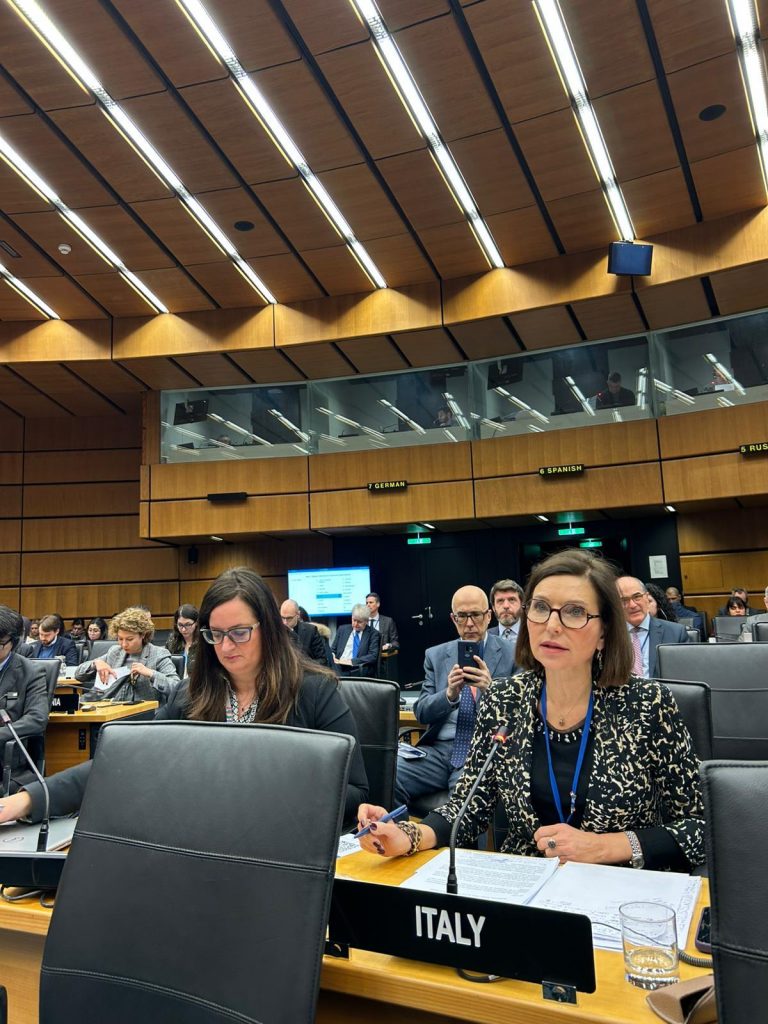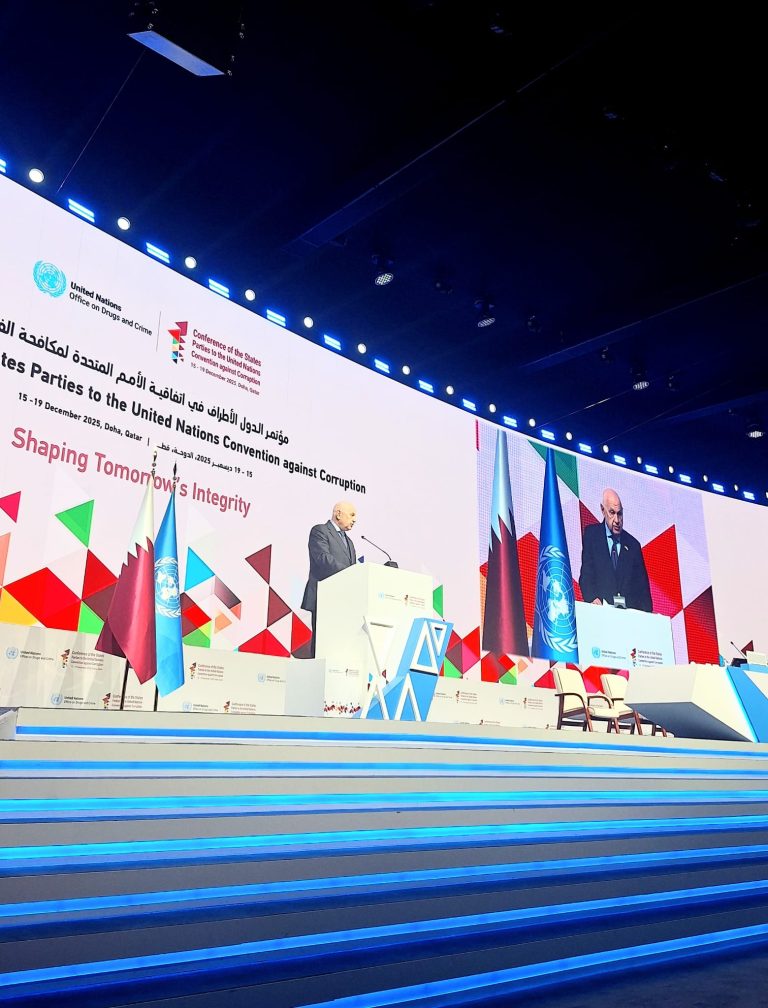
The UNISPACE + 50 event, which marked the fiftieth anniversary of the first United Nations Conference on the Exploration and Peaceful Uses of Outer Space, was held in Vienna from 18 to 21 June 2018. The event consisted of an interactive Symposium on 18 and 19 June, followed by a High-Level Segment open to all UN Member States. More than 1,200 delegates attended the event, on behalf of governments, international organizations, academics, civil society and the private sector. Among several key moments – including the opening remarks by Austrian President, Alexander Van der Bellen, a video message by the UN Secretary General, Antonio Guterres, and the inspiring testimony of the UNOOSA Space Champion Scott Kelly – was the ceremony in which the Italian astronaut Paolo Nespoli handed over to Simonetta Di Pippo, Director of UNOOSA, the flag showing the 17 Sustainable Development Goals of the United Nations, that he had flown aboard the international space station.
Such ceremony was intended to symbolize the important contribution of space applications to the attainment of the Sustainable Development Goals. As a matter of fact, space technology is essential in many areas related to development, such as telecommunications, monitoring of phenomena related to deforestation, climate change, mapping of migration flows, epidemiological surveillance, improvement of agricultural production and responses to natural disasters. The Resolution entitled “Fiftieth anniversary of the first United Nations Conference on the Exploration and Peaceful Uses of Outer Space: space as a driver of sustainable development” which was endorsed by the heads of delegations at the opening of the High-Level Segment, extensively refers to these aspects. In this regard, the 61st session of the Committee on the Peaceful Uses of Outer Space, which followed the UNISPACE+50 celebrations, established a Working Group in order to develop a “Space2030 Agenda”, whose Vice-Presidency was assigned to Ambassador Accili. The Space2030 Agenda will strengthen international cooperation in the exploration and peaceful uses of outer space, as a way of contributing to the Sustainable Development Goals.
Italy took an active part in UNISPACE + 50. Fabrizio Nicoletti, Principal Director for Innovation and Research at the Ministry of Foreign Affairs and International Cooperation, represented Italy at the High Level Segment. He highlighted the Italian contribution to the preparatory process of UNISPACE + 50 , in particular through the proposal of the Open Universe initiative on improving access to space and astronomical data and the organization of the first two editions of the International Space Forum (in Trento and Nairobi, while the third edition will take place in Buenos Aires by the end of the year), aimed at creating a global network of universities and academic institutions in the space sector. Moreover, Roberto Battiston, President of the Italian Space Agency took part in the Symposium and opened a seminar which showcased the advanced technology of Italian space industry and its contribution to sustainable development. This initiative was organized by the Italian Ministry of Foreign Affairs and International Cooperation and the Italian Space Agency, with the participation of the business associations AIAD, AIPAS, ASAS.









